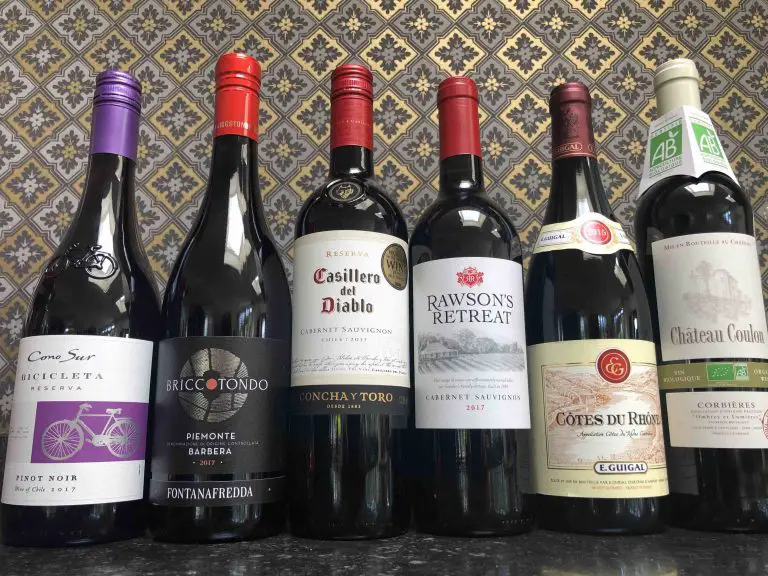It’s 2016. Uber has spread globally at
an unprecedented rate and broken every
rule along the way. The company has been
illegally surveilling drivers and
customers for years. They’ve violated
local laws in dozens of countries and
municipalities. They’ve stolen trade
secrets and IP from competitors and at
the time are secretly following
journalists who have been critical of
the company in an effort to blackmail
them. At the center of the storm is
Travis Kalanick, a brazen but brilliant
CEO and founder who has, despite the
mounting pressure, remained relatively
unscathed. But another year passes and
the wheels come off. Pun totally
intended.
Stole about 14,000 confidential files.
Google sues Uber for stealing their
trade secrets. The New York Times
reports that Uber knowingly misled
regulators about their technology.
Female employees start filing sexual
harassment lawsuits. A video leaks of
Kalanick berating an Uber driver.
Kalanick is out entirely, at least as
CEO of Uber, reportedly under pressure.
Kalanic is finally pushed out and forced
to resign a few months later. Everything
was lost.
Or was it? Nah, let’s be serious.
Nothing was lost. Kalanick walked away
with a sweet ass $3 billion comp
package, got plenty of funding for his
other companies, and is now kicking back
in his $43 million Beverly Hills
mansion, counting his money and laughing
about it. You look around and you see
this in the world time after time. The
liar, the narcissist, the bully. They’re
not just surviving, they’re thriving.
They’re on the covers of magazines,
running billion-dollar companies, and
racking up followers and influence. And
meanwhile, the honest, kind, decent
people, burned out, broke, invisible. If
that feels backwards to you, well, it’s
because it kind of is. And it’s not
random either. In fact, there’s a brutal
logic to why the worst people often win
in life. And in this video, we’re going
to get into why. But first, a quick word
from the sponsor. Now, let me ask you a
question. Are you someone whose calendar
is completely stacked with meetings? Do
you ever find yourself digging deep into
your brain trying to remember what was
said when by whom? Was that the
marketing team that said that? Was it
the ops team that said that? Do we even
remember who the marketing team is? If
yes, then you really need to try out
Granola AI. Granola is an AI powered
notepad designed to make every meeting
easier and more useful. And here’s how
it works. While you’re jotting down all
of your own thoughts, Granola is quietly
transcribing the entire meeting in the
background. That way, you can stay fully
present. And then when the meeting’s
over, you click generate notes, and it
creates a clean, structured summary
complete with all the action items,
follow-ups, and even draft emails that
you can send out right away. Now,
Granola doesn’t just help in the moment.
Weeks later, you can literally ask it
questions about anything from any past
meeting. It’s like having your own
searchable brain for everything that’s
ever been discussed,
ever. Granola works for Zoom, Teams,
Meet, or even in-person conversations so
that you can have smarter meetings to
get more value out of your time. So, if
this sounds like something you could
use, click the link in the description
below and check out Granola today. From
the time we’re young, we’re taught that
the world rewards virtue, being kind,
playing fair, helping others. And in
early life, that mostly holds up. But
that’s only because the world we start
in is small. When your environment is
limited to family, classmates, close
friends, altruism actually works.
Meaning that when you share and you help
others and you’re being considerate,
you’re not only showing good manners,
you’re practicing a strategy that is
nurturing your development. In this way,
your reputation is built on your
character. You learn that doing good
often leads to getting good back. And
for a while, that is true. But then
things start to scale up. As we become
adults, we move into larger systems.
Corporations, governments, [ __ ] Tik
Tok, and we realize that the old rules
start to break down. The feedback loops
that once rewarded virtue become
distorted or lost. You see, our moral
instincts were designed for small groups
where harm was immediate, visible, and
personal. But when you scale things up,
when you add distance, complexity, and
layers of abstraction, those instincts
start to fail. Imagine seeing a child in
front of you being forced into slave
labor. You’d probably feel immediate
outrage and try to do something. But now
imagine that same child hidden behind
global supply chains, company logos, and
a sleek online storefront. Oh, and also
5,000 mi away. And your attention is not
on exploitation anymore. Instead, it’s
on the shiny new product that’s 10% off.
Human attention is limited, and we can
only focus on a few things at a time.
usually things that we can see or people
that we can talk to. So when confronted
with global complexity, our minds lose
track of everything. We check out
mentally. It’s too hard to think about
the child labor in Africa or the actions
of the Russian government. You just want
to buy a [ __ ] watch. This is how
moral clarity gets diluted. Emotional
feedback, which usually helps us sense
what’s right from wrong, gets lost in
the infinite complexity of our modern
systems. As a result, our natural
ethical signals become very faint. And
when they do come through, our attention
shifts not towards what’s most right or
wrong, but towards what’s loudest and
most visible. This is why the moral
outrages of the day are usually
completely detached from reality. More
people die of coal pollution each year
than all of nuclear power accidents
combined across human history. Yet,
environmentalists are protesting nuclear
reactors and not the coal plants. This
is the brutal truth. In these large
scale systems, people only care about
what is the loudest and commands the
most attention. And by constantly being
distracted by what is loud, we open the
door for those who are extremely good at
manipulating attention and taking
advantage of inattention. The
egoomaniacs, the narcissists, and the
tyrants.
In the early 1500s, Nicolo Makavelli
lived in a world steeped in corruption
and political upheaval. Unlike today,
Renaissance Italy didn’t have the glossy
corporate veneer of an HR department or
DEI codes of conduct. It had poisonings,
public executions, secret alliances, and
political backstabbing. No, like like
actual [ __ ] backstabbing.
But despite the dangerous conditions he
lived in, he wasn’t just some armchair
philosopher scribbling in isolation.
Mchaveli was deep in the trenches,
advising princes and kings. For over a
decade, he served as a senior diplomat
and adviser to the Florentine Republic,
negotiating with popes, kings,
mercenaries, basically anyone who held
the reigns of power. And through it all,
he saw how the game was actually played.
Power, he realized, didn’t reward
virtue. It rewarded instinct, survival,
and cunning. Power didn’t favor the best
or most morally upright men. It favored
the last one standing, usually over
someone else’s dead body. And so from
this brutal landscape, Mchaveli offered
a conclusion that still makes people
squirm. It is better to be feared than
loved if you cannot be both. Mchaveli
pointed out something everyone saw but
didn’t really want to see. The higher
you climbed in the rungs of power, the
more amoral you had to become. And the
same traits that harm you locally can
potentially reward you globally.
Of course, nobody liked hearing this, so
they killed Mchaveli and tortured him
until he gave up names. No, just
kidding. He actually had a stomach
virus. Anyway, as Nichzche later put it,
terribleness is part of greatness. Let
us not deceive ourselves. So, I’d like
to take a moment and discuss some of
these traits that make you a horrible
person to your friends and family, but
actually might make you a billionaire or
prime minister if you play your cards
right. In psychology, they’ve identified
three of these strategic personalities.
Together, they are called the dark
triad.
Mchavelianism is about strategic control
or the willingness to manipulate people
and [ __ ] with their heads. People high
in mchavelianism are willing to lie,
cheat or steal if they believe that they
can get away with it. They will mislead
you, create drama to benefit themselves,
turn you against the people you care
about, divide and conquer. Narcissism,
by contrast, is fueled by
self-importance and the hunger for
recognition. The narcissist is
self-obsessed and deluded in their own
high self-regard. They believe that not
only is everything about them, but
everything should be about them because
I mean, look how [ __ ] awesome they
are. And finally, psychopathy is perhaps
the most famous and the worst of the
dark triad. It’s marked by complete
emotional detachment, a lack of empathy,
and a really conspicuous boldness under
pressure. Psychopaths don’t really feel
fear the same way they don’t feel love.
And they acrue the costs and benefits
that come with both of those. In a
brutal and competitive environment, this
can look like clarity and focus, even
strength. I mean, think about Steve
Jobs. He wasn’t a psychopath in a
clinical sense, but he was certainly
somebody who embodied a lot of
psychopathic traits in business. He
fired people for saying the wrong thing
in a meeting. He exploded at employees
for even the most minor of mistakes. He
ridiculed other people’s ideas
regularly. I already fired you. Why are
you still here? A former Apple employee
once recalled, “He didn’t want to just
win. He wanted to crush you, and then he
acted like it was your fault.” Each of
these traits reflects a distinct
psychological strategy, a way of
navigating systems that are too vast,
too impersonal, and too competitive for
old school virtue to consistently
succeed. And no, they aren’t exactly
healthy or moral, but in certain
environments, they can be very
effective. But let’s start with the bad
news. People high in these traits are in
fact over represented in positions of
power as CEOs, politicians, and major
media figures
made to react.
But here’s the good news. They are also
over represented in prisons because
that’s basically the deal. These are the
high-risk, highreward personality
traits. They help you thrive in a large,
complex system, but they don’t pan out
well in stable ones, ones that require
cooperation, trust, or long-term
emotional support. In other words, what
may help you win in the jungle is what
gets you exiled from the village. This
is another flaw of our perception. Sure,
we notice the narcissistic CEO or the
egoomaniacal celebrity, not because
they’re common, but because their rise
is loud, public, and cinematic. What we
don’t see are the thousands and
thousands of people with the same
arrogance, the same disregard for social
norms who crash and burn without anyone
noticing. Most narcissists don’t become
icons. They get fired and dumped. Most
machavelians don’t outplay the game.
They get caught and banned from coming
back. Most psychopaths don’t build
empires. They wreck their own lives and
the lives of those around them. Our bias
makes it so that the failure doesn’t
trend, only the successes. And that’s
how our minds get tricked. By
overvaluing the few visible winners, we
start to believe that these traits work
more often than they actually do. That
said, even among the few who do seem to
win by wielding their dark triad traits,
much of the truth is still hidden. They
rise through manipulation, ego, and
ruthlessness. Yet, I would argue that
these people aren’t really winning. Why?
Because behind closed doors, they are
very likely miserable, lonely sacks of
[ __ ] who [ __ ] hate themselves and are
this close to sticking their head in a
plastic bag or sucking on a tailpipe in
their seven Bugatti garage. But don’t
take my word for it because we actually
have research on this.
Elizabeth Holmes was too good to be
true. A supposed Stanford prodigy who
dropped out to start a revolutionary
biotech company. She convinced her own
business professor to become her first
investor. At long last, she was the
female Vunder of Silicon Valley that
they had been waiting for. A brilliant,
confident, visionary woman who could
finally redefine what a startup CEO and
billionaire would look like. Her product
was also too good to be true. It
promised things that were literally
scientifically impossible. But Holmes
didn’t care. She faked the test cases at
pitch meetings. She lied about the
results. And she just forced her
narrative down everybody’s throats. And
what happened? Well, investors lined up.
The media swooned. Former presidents
joined the board. Basically, everything
held up until it didn’t. After 12 years,
the lie finally got out. A public
journalist exposed in 2015 that Holmes
and her company were in fact too good to
be true. Now, what Holmes’ story shows
us along with Kalanics is that success
built on a dark triad personality is
never stable. When you treat people like
tools or threats or just dirt, you don’t
build character, you build blind spots.
In Hol’s case, it was delusions of
grandeur. This is because when your
identity is tied to achievement, there’s
no moral compass. Instead, your life’s
navigation system is solely driven by
metrics and output. And over time that
corrods you. This brings us to an
uncomfortable truth. What gets
sacrificed on the road to success at all
costs isn’t just trust, connection, or
reputation. It’s guilt. And that’s where
the real unraveling begins. Because
here’s the thing most dark triad
personalities never realize. It’s that
chasing success without integrity
doesn’t just damage others, it damages
themselves. And not by making them feel
guilt, but rather by making them
incapable of feeling guilt at all. Now,
you might think a life without guilt
would actually be pretty awesome, maybe
even an advantage, but it’s not.
Psychologist Steve Stewart Williams says
that guilt may have started as a simple
prompt to repay social debts, but it’s
evolved to do much more. It’s our
internal alarm system, warning us that
we’re on the edge of self-destruction.
And so, this tells us why the dark triad
personalities are the truly dangerous
ones. It’s because they are those who
train themselves not to feel guilt.
There’s no feedback loop. There’s no
learning that happens from their
mistakes because they never feel that
they did something wrong. They never
have to correct their actions in the
future. Instead, they shut those
feelings off. And sure, for a while that
might work. It might give them some
confidence, some boldness, an ability to
move forward without flinching. But when
they finally do get caught, guilt comes
crashing back. And it doesn’t come
alone. It comes with backup like shame,
fear, and regret. So yes, you can
succeed without integrity and listening
to your guilt, but you will eventually
pay for it. And history and mythology
are replete with examples of these sorts
of cautionary tales. From Edipus Rex,
the Citizen Cain, the [ __ ] Hitler,
they show that winning the global game
of power often means forfeiting the
local game of any connection or meeting.
But there is good news. You can still
win without being a sociopathic
narcissistic [ __ ] boy. And it’s actually
not not that hard to figure out how.
At the start of the video, I talked
about how rigged the system can feel.
How the worst people seem to rise while
good people get ignored. And I also
mentioned a reframe that could help.
It’s understanding and accepting that
morality is a localized strategy. It
evolved to work in small personal
networks. So naturally, when the system
grows too big or too impersonal, our
moral instincts can start to misfire.
But that doesn’t mean we throw these
instincts out entirely. It means that we
adapt. We get smarter about how and when
to use our virtues. So the real
challenge here isn’t becoming like the
worst people. It’s learning what they
get right about power and visibility
without sacrificing your integrity and
your [ __ ] soul.
Point number one, empathize less. This
sounds cold, but stay with me. Empathy,
like morality, evolved as a local tool.
It’s designed to be narrow and
immediate, meaning you can only truly
empathize with one person at a time. And
that makes sense in a tribal life. You
needed to feel what your group felt to
react to the same threats to signal
loyalty to your friends and family. But
empathy also has a downside. It narrows
your field of vision. In contrast, think
of how it feels when you confide in a
friend about being hurt and instead of
validating your pain, instead of
empathizing, they start defending the
person who wronged you. It stings and
you feel betrayed. But ironically, that
kind of perspective taking is exactly
what we need in a large scale system.
What we need isn’t more emotional
immediiacy. It’s more compassion. Unlike
empathy, compassion is broader. It lets
you hold multiple perspectives at the
same time. It shifts you out of raw
emotion and into a rational discernment.
exactly where you need to be when
navigating complex social systems where
the stakes are high and the
relationships are not always personal.
Say a colleague is struggling. Empathy
might have you drop everything to help
them, to feel what they feel, to fix it.
But compassion lets you pause. It gives
you time to let your values weigh in the
decision-m to ask yourself what’s
actually helpful here? What’s the right
amount of [ __ ] to give? Is this even my
problem? Am I perhaps enabling more of
the problem? It’s like watching someone
fall in sink in the quicksand. empathy
immediately dives in after them.
Compassion goes and finds a rope. In
this kind of competitive world,
strategic compassion and not reactive
empathy is the skill that allows you to
care without being consumed, to act with
integrity without losing effectiveness.
In this way, you’re able to adopt an
aspect of the dark triad without going
fully evil yourself. Number two, stop
seeking universal approval. One of the
most self-destructive traits you can
carry into a competitive environment is
the need for constant external
validation. And the tricky part, it
often wears a disguise. It can look like
kindness, cooperation, and humility. But
underneath, it’s just plain neediness.
Here’s an uncomfortable truth for you.
Wanting everyone to like you is itself a
subtle form of narcissism. It’s another
version of making everything in the
world about yourself. Paradoxically, it
is only when you find reasons that
you’re willing to be disliked that you
will finally be able to stop living for
yourself and do the right thing for the
sake of doing the right thing. Number
three, learn when to speak up even when
you’re uncertain. I say this because, as
we talked about, the world doesn’t
reward who’s right. It usually rewards
who is seen. And there’s real science
behind that. It’s when our brains assume
that the person who talks the most must
be the leader. In group settings, we
subconsciously assign power to whoever
commands the floor, regardless of what
they’re actually saying. That means in
meetings, debates, even casual
conversation, the one who speaks the
most often will usually walk away
perceived as the most competent. And not
because they had the best ideas, but
because they risked the most ideas and
they had the most airtime. So, what does
this mean for you? It means you can’t
afford to stay quiet. If you have ideas,
[ __ ] say it. If you disagree, voice
it. Because staying silent to avoid
being wrong is how you get overlooked.
But speaking up is how you get seen,
remembered, and respected. If you’re
unsure, speak anyway. Isaac Newton, the
same guy who redefined physics, spent 30
years obsessed with alchemy, a [ __ ]
pseudocience. He wrote over a million
words on it. And the reason you never
hear about this is because it was
[ __ ] stupid. Arguably the smartest
man who ever lived spent most of his
adult life on a pseudocience and nobody
remembers it or cares. Because it’s few
good ideas were so great, nothing else
mattered. So here’s the lesson. One
great idea will undo the damage of a
thousand bad ones. And until you speak
up, you’ll never know which of those
ideas are the great ones.
Why the Worst People Are So Successful
Disclosure: Als Bol.com en Brouwland.nl partner ontvangt deze website een kleine commissie bij aankopen via bovenstaande link.











![De kunst van malolactische gisting: wanneer en waarom je wijn zachter wordt (uitgebreide uitleg]](https://zelfwijnmaken.com/wp-content/uploads/2025/09/GoodFeeling.nl-xxx-2-150x150.webp)

